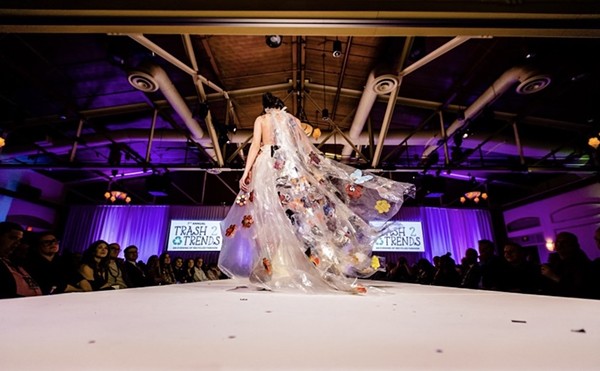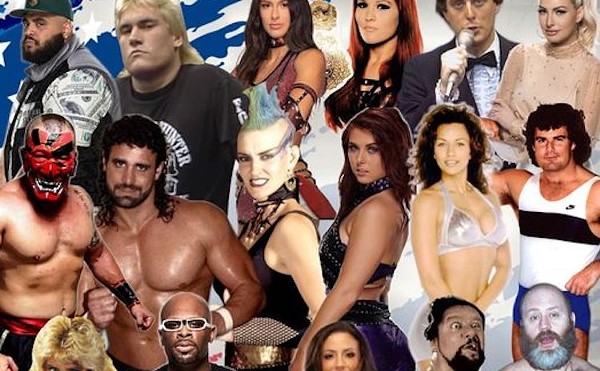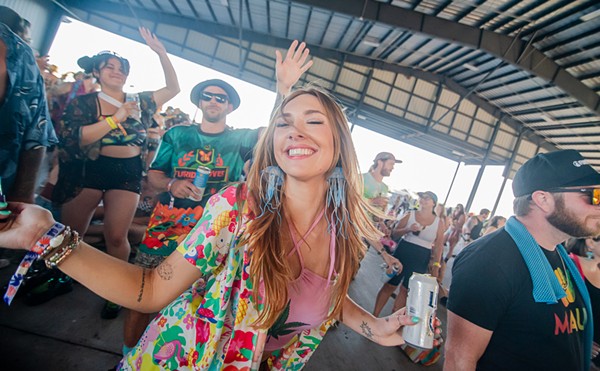You don’t need to be told that we need serious election reform in this country. What you might need, though, is a refresher on how badly our voting system is damaged. For that, turn to Election Day, a documentary made for the P.O.V. series on PBS.
Director Katy Chevigny sent out 14 film crews on Nov. 2, 2004, to capture the nation as it went to the polls to decide not only the Bush-Kerry race for the presidency but down-ballot elections and issues as well.
Her intention wasn’t to expose the flaws in our system. It just worked out that way.
“We set out to depict the real people who make our democracy work, but whose actions are not the stuff of the evening news,” Chevigny said in the press materials. “Our jumping-off point was the 2000 election, which had brought the failures of our voting systems into sharp focus. We decided to look at how the shadow of that election would affect the attitudes and experiences of voters and poll workers across the country in 2004.”
The film captures scenes of voting by several people who work hard and play by the rules, as Bill Clinton liked to say. It shows us small moments, such as when former state legislator Alzo Reddick greeted John Kerry supporters at his Orlando restaurant, Queen Bee’s, while Douglas “Bossman” Hicks, who washes dishes in Reddick’s kitchen, talks about how he can’t vote because he’s an ex-felon. And it reminds us – through scenes from Quincy, Fla., where a candidate named Morris Young was running to become the first black sheriff there since the turn of the 20th century – that elections are serious, important and personal business.
But most of Election Day winds up revealing voting irregularities, the hodgepodge of rules that exists from state to state and mass confusion at several polling places. No one will be terribly shocked to see black voters waiting in long lines – “No telling how many people have left because of this situation,” says a frustrated woman in St. Louis who waited more than two hours to vote – or to find felons prohibited from voting in Florida but not New York; or to see a Chicago polling place where they run out of ballots before they run out of voters and another where a precinct worker is illegally sitting alongside election judges.
It’s watching the collective wrongdoing all together in a 75-minute block that brings the problems into focus. The film has only a few explanatory subtitles and no narration or particular point of view. Democrats and Republicans are equally represented. And Chevigny doesn’t tell us what to think, either. She simply lays out the scenes and lets us decide.
Her work left me thinking that something is radically wrong when this country has a supercomputer that can perform one thousand trillion operations per second, yet some voters must poke holes in ballots they insert into the open slot of a rusty gray box. Why is it that an 18-year-old can walk into a Wisconsin polling place, register and vote on the same day, but citizens in other states must jump through hoops to file even provisional ballots? Why can’t an Ohio candidate hand voters pencils with his name on them as they enter a polling place, but others can give out campaign literature?
What’s astonishing is that after the Florida voting debacle of 2000, no one did much of anything to repair the system. Then 2004 happened, and even more people were disenfranchised. With the next election a mere five months away, the question lingers: Can’t we do better than this?
Election Day ends with a scene of joy: Young wins by a narrow margin in Quincy. Still, even as his family and supporters are celebrating, they keep watch as the votes are recounted. “Watch the process. Watch the process. Do not take your eye off the process,” one supporter tells him.
How pathetic that we find ourselves living in an era where people don’t trust their government to conduct full and fair elections. But as Election Day suggests, why should they? A group called Fair Election International that monitored the 2004 U.S. vote reported that low-income areas of St. Louis had fewer voting machines and poll workers than wealthier areas. Maybe the poll worker who makes the astounding claim that voting is “not truly a right; it’s really a privilege” is onto something. As we know, some people are more privileged than others.
[email protected]















